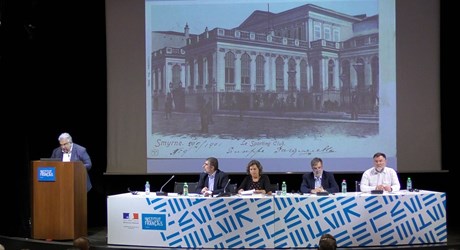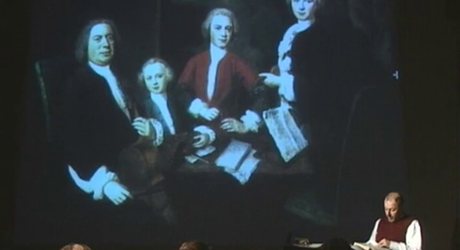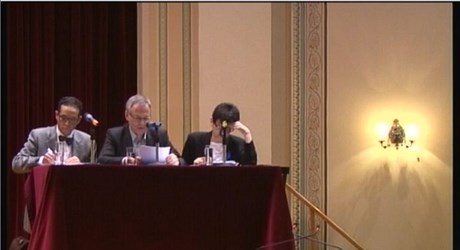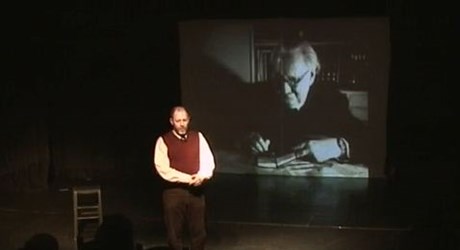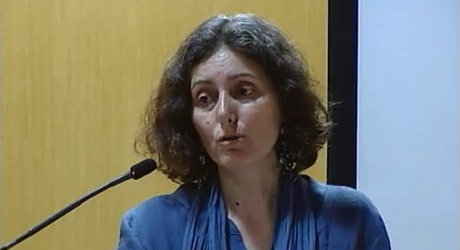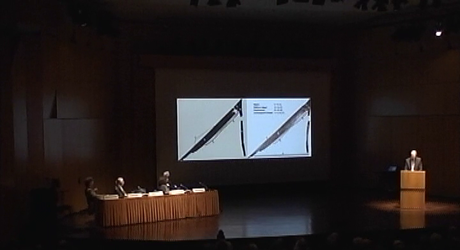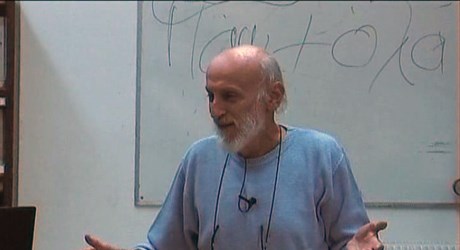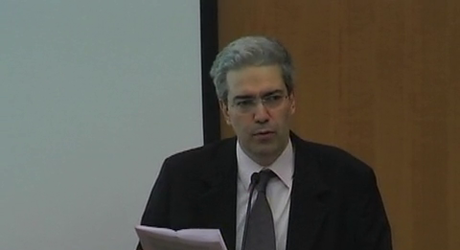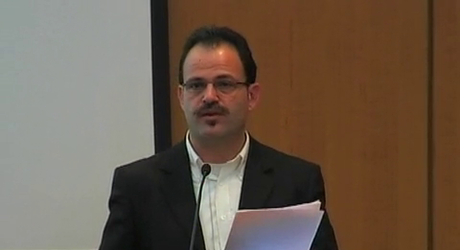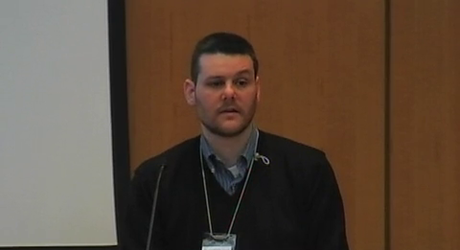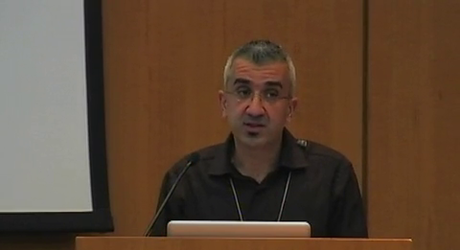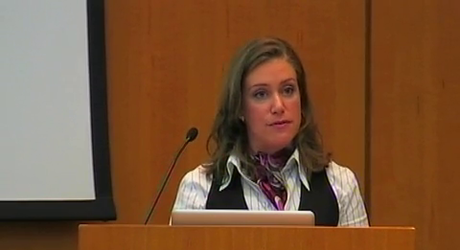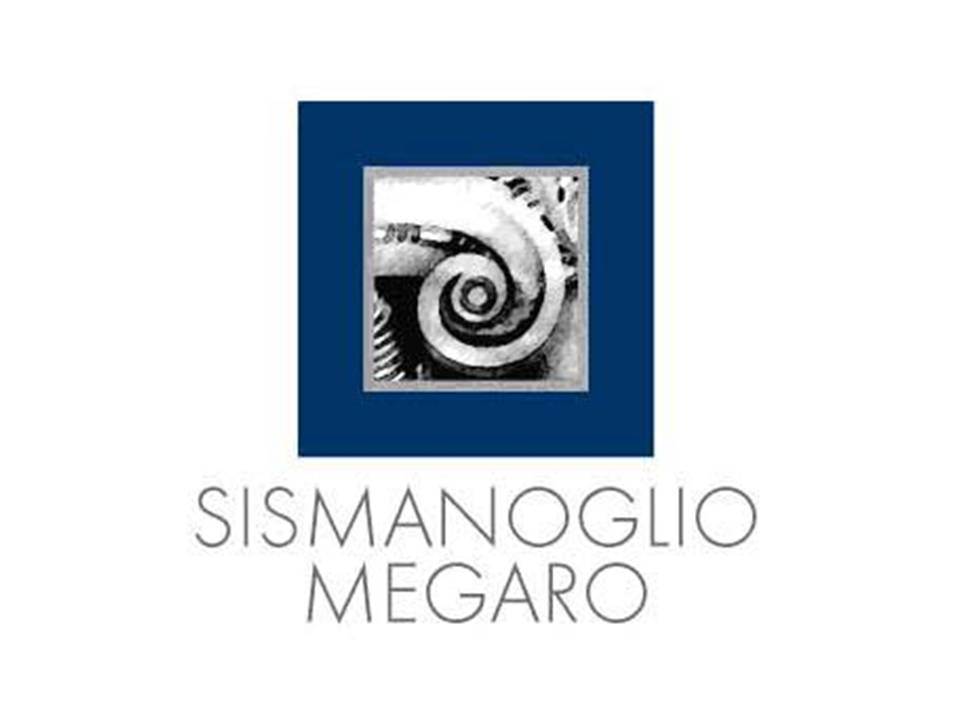
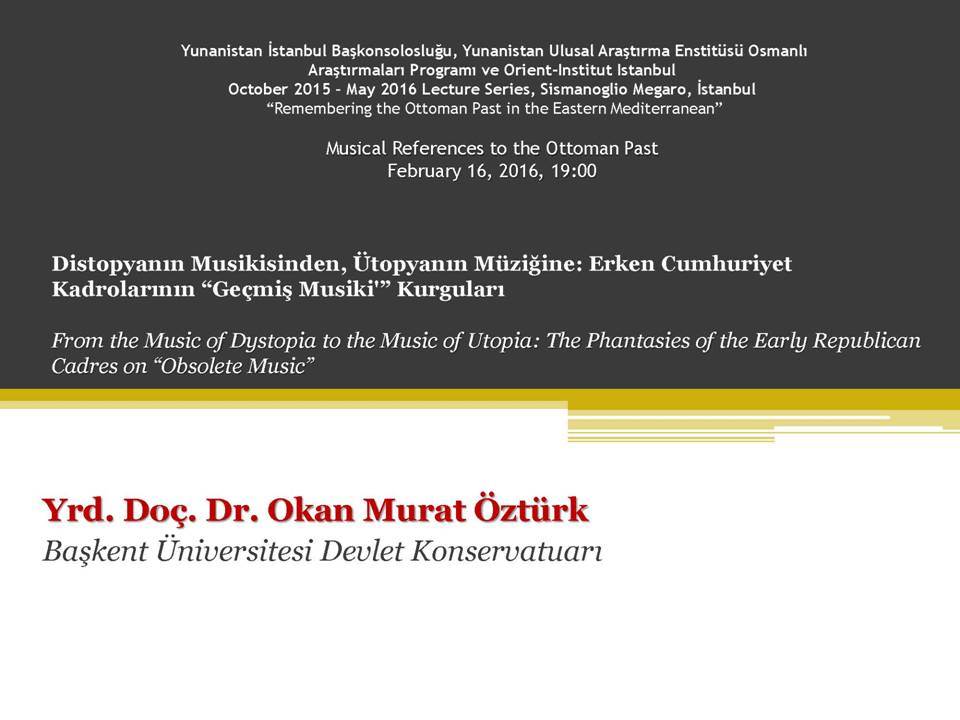
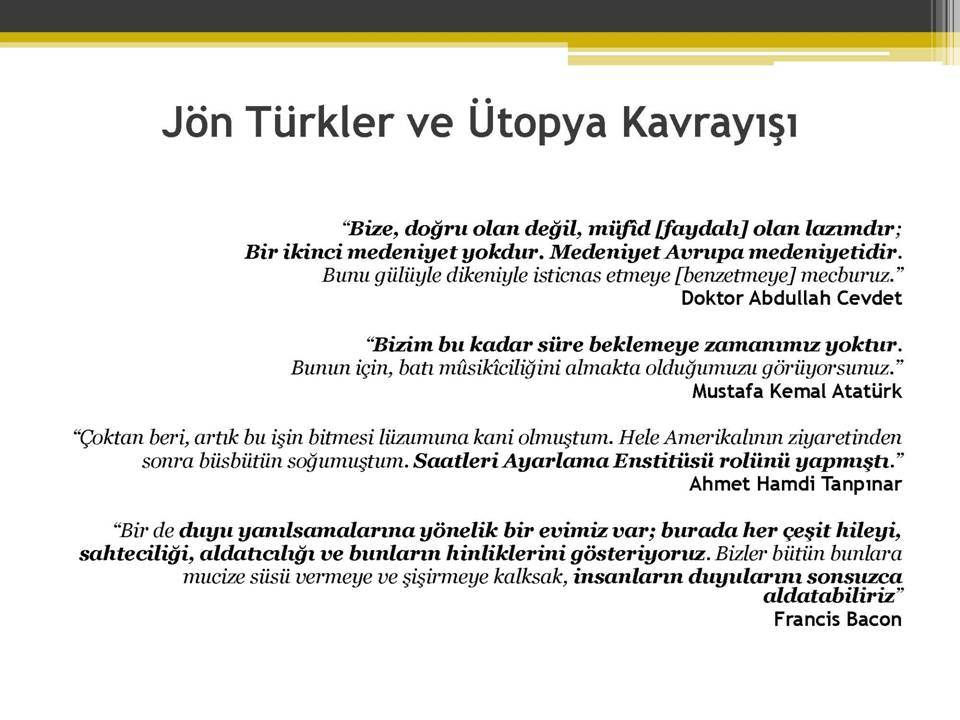
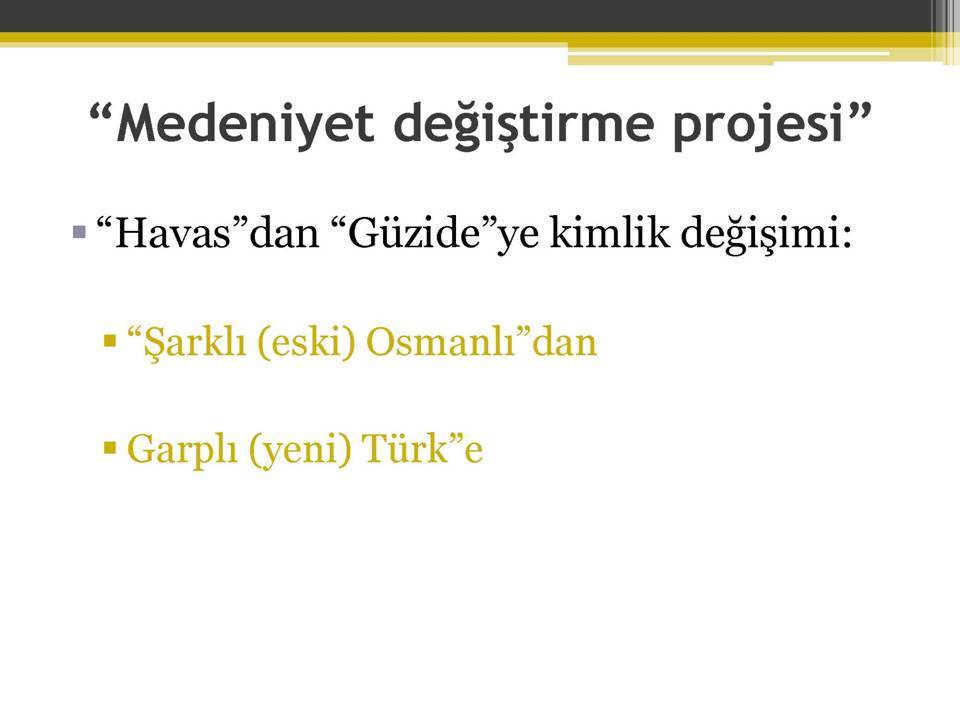
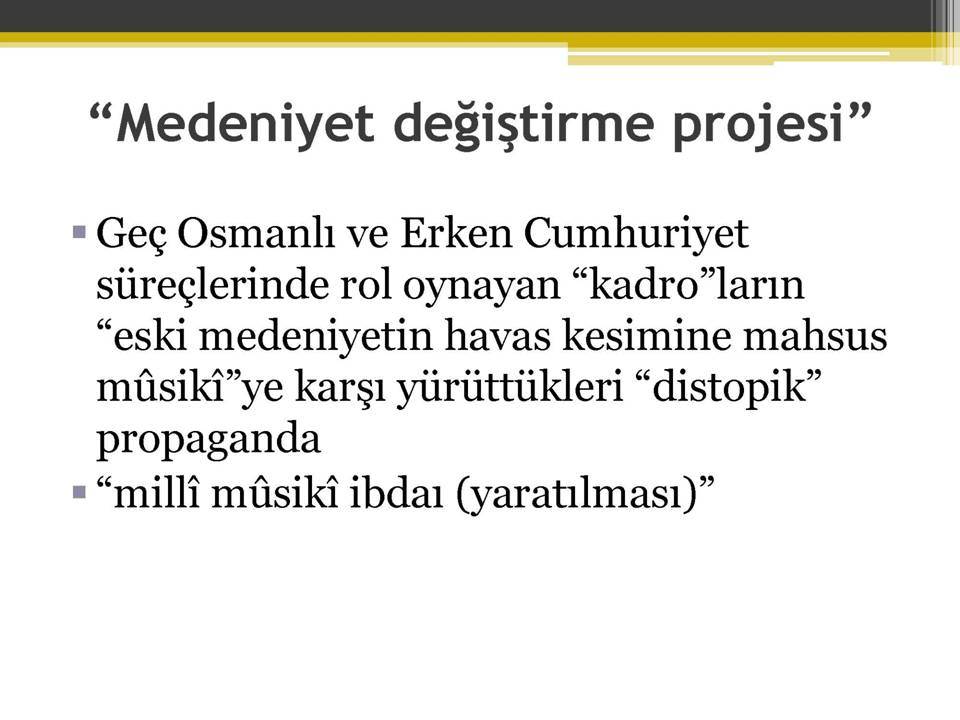
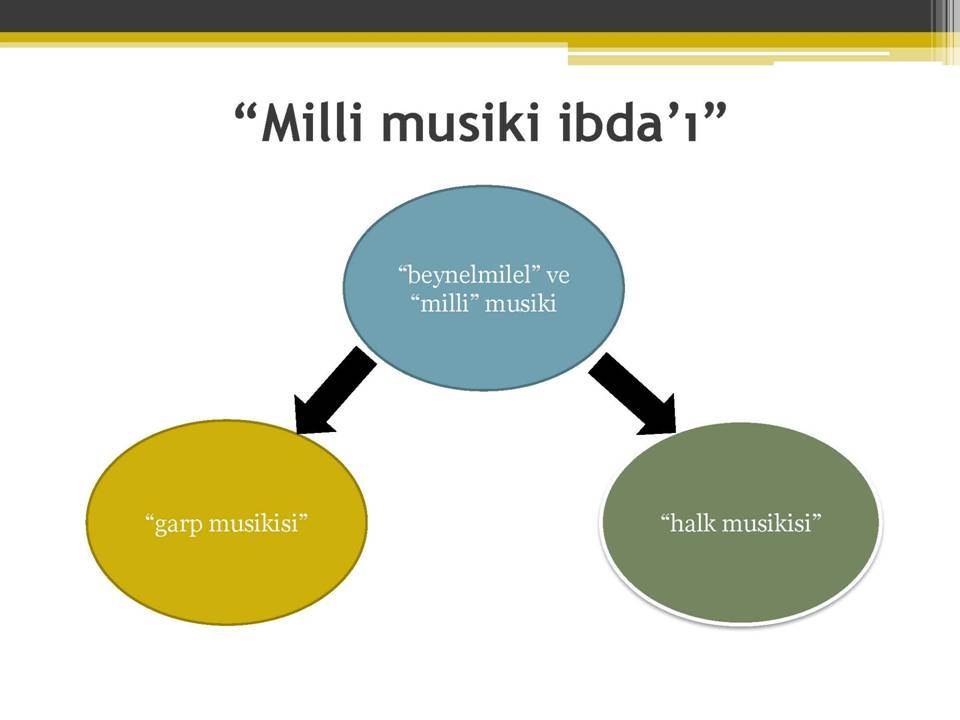
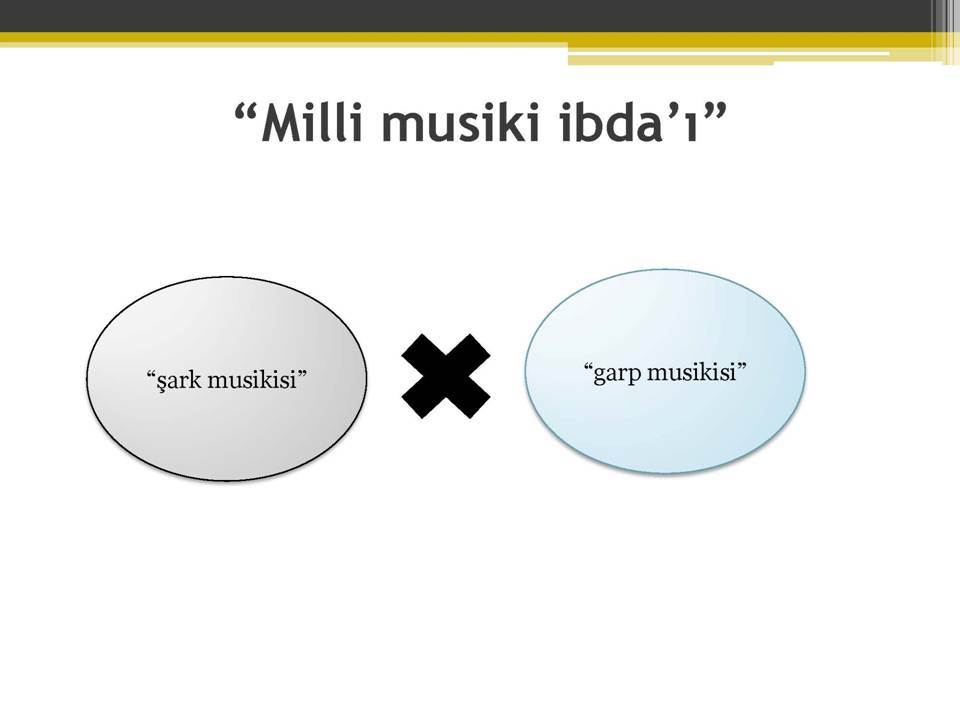
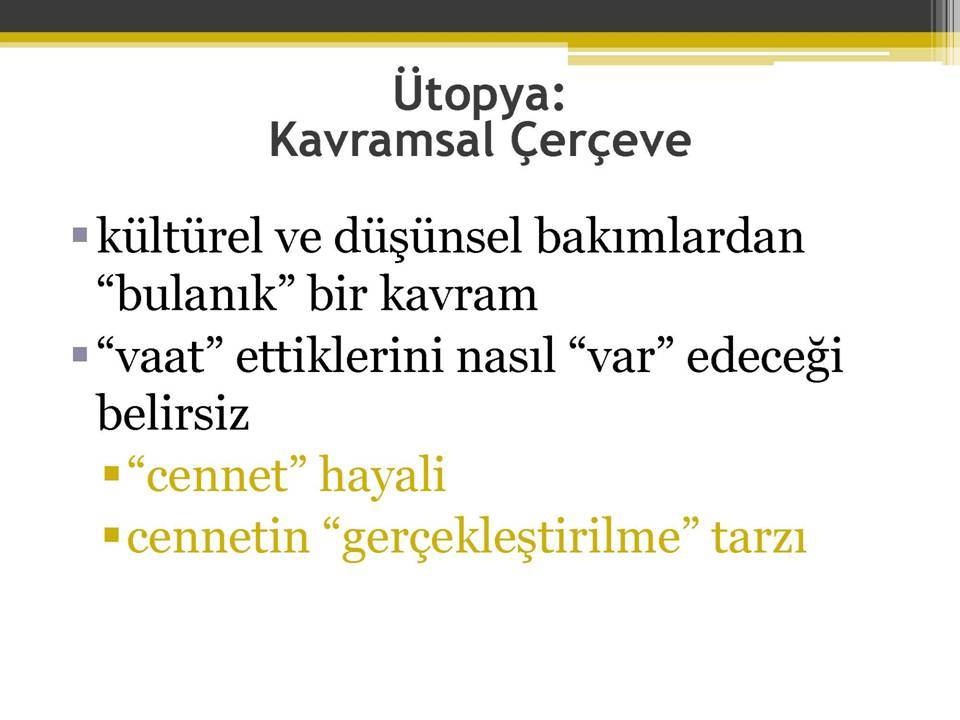
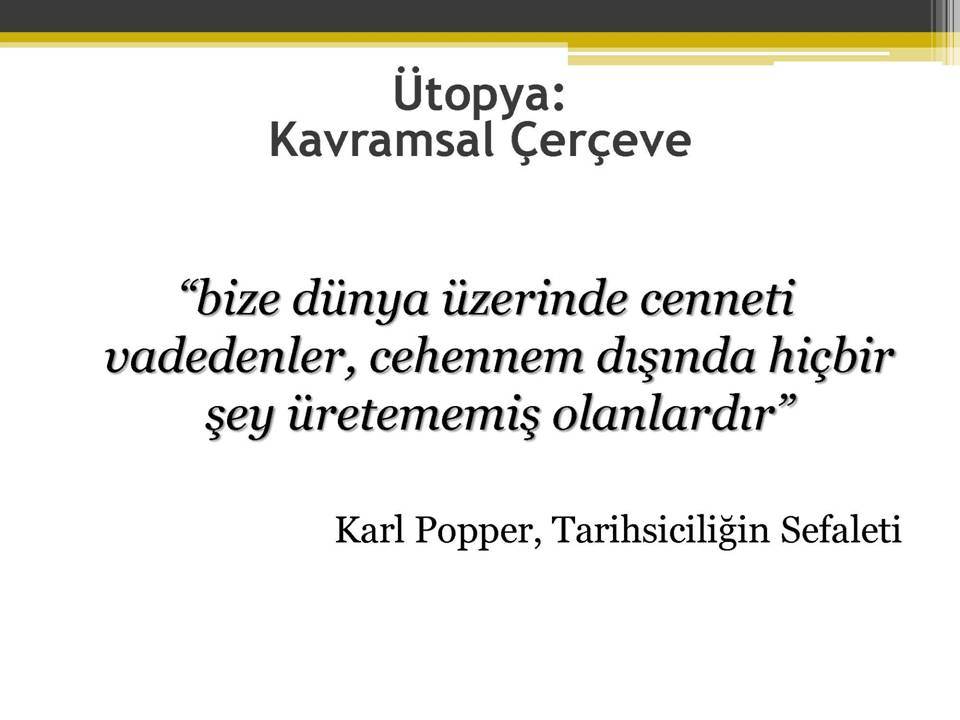
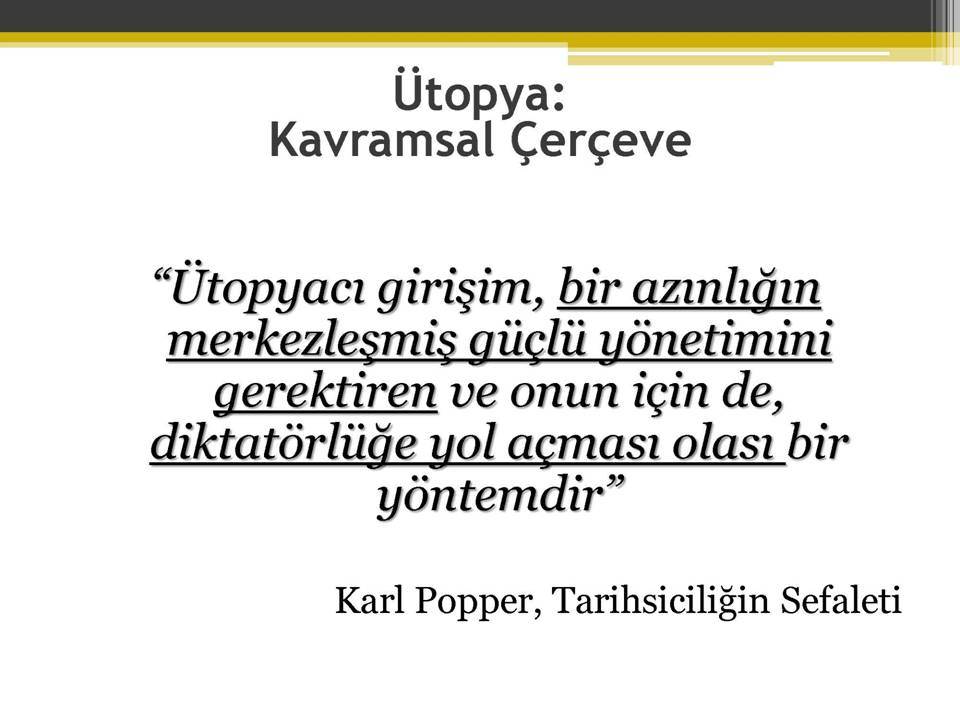
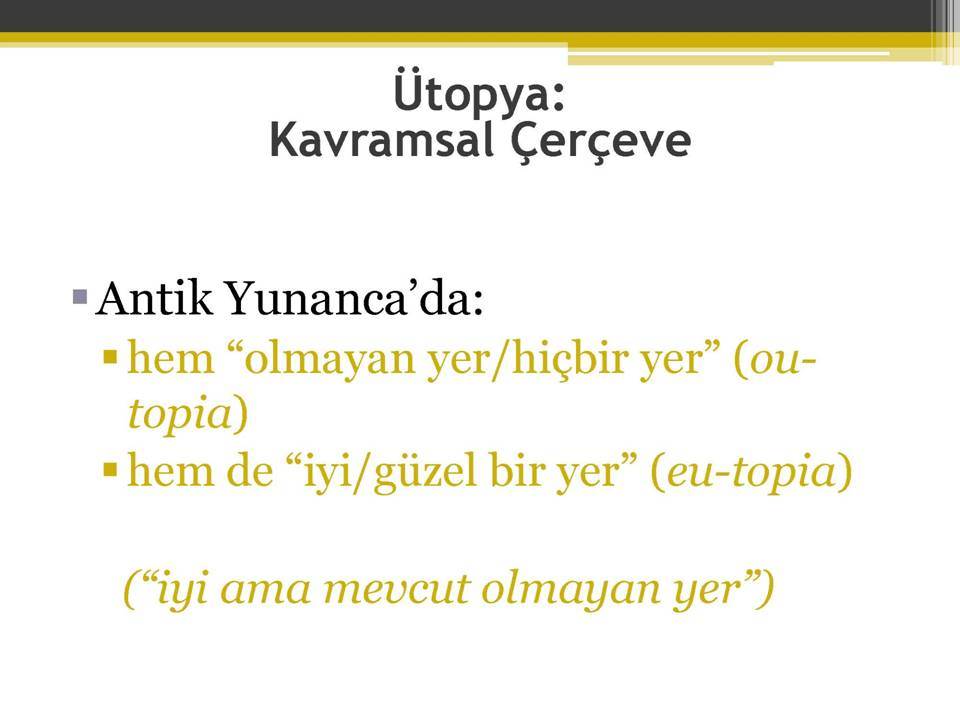
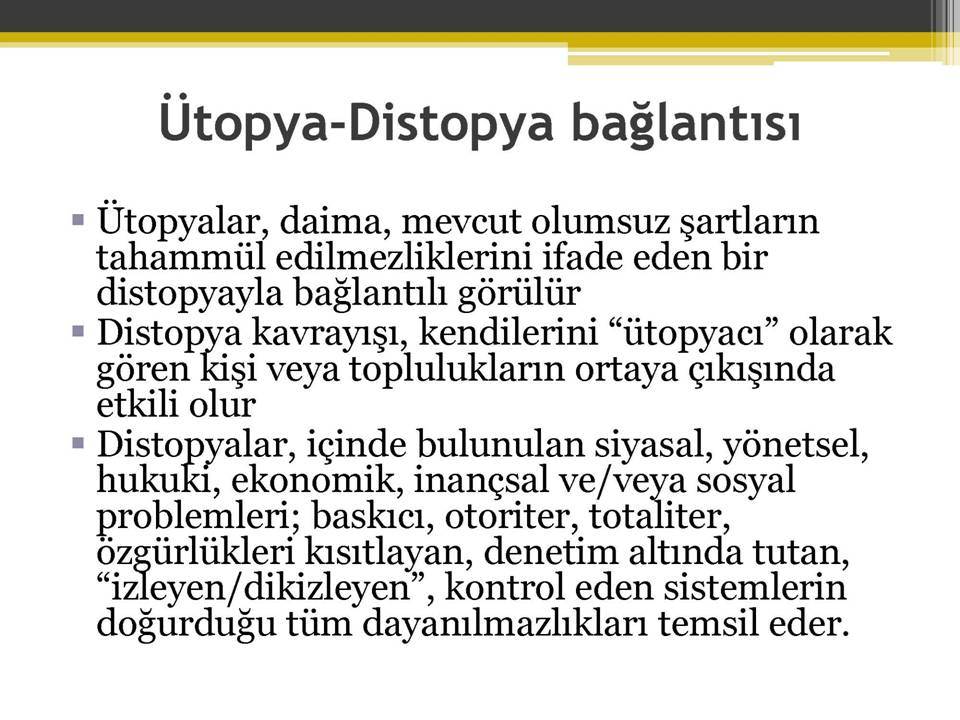
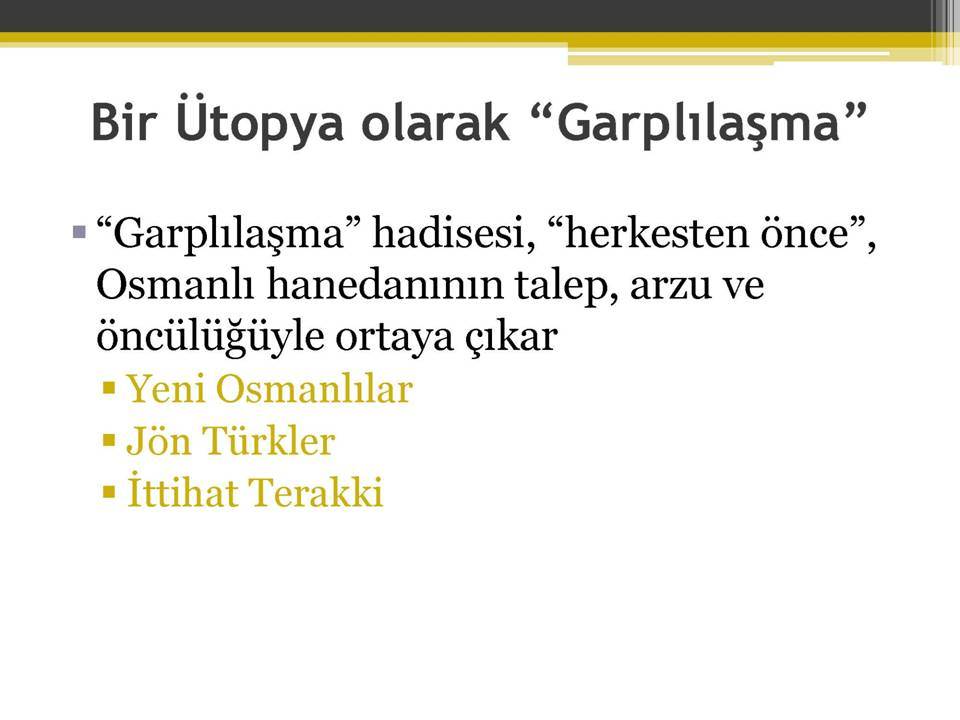
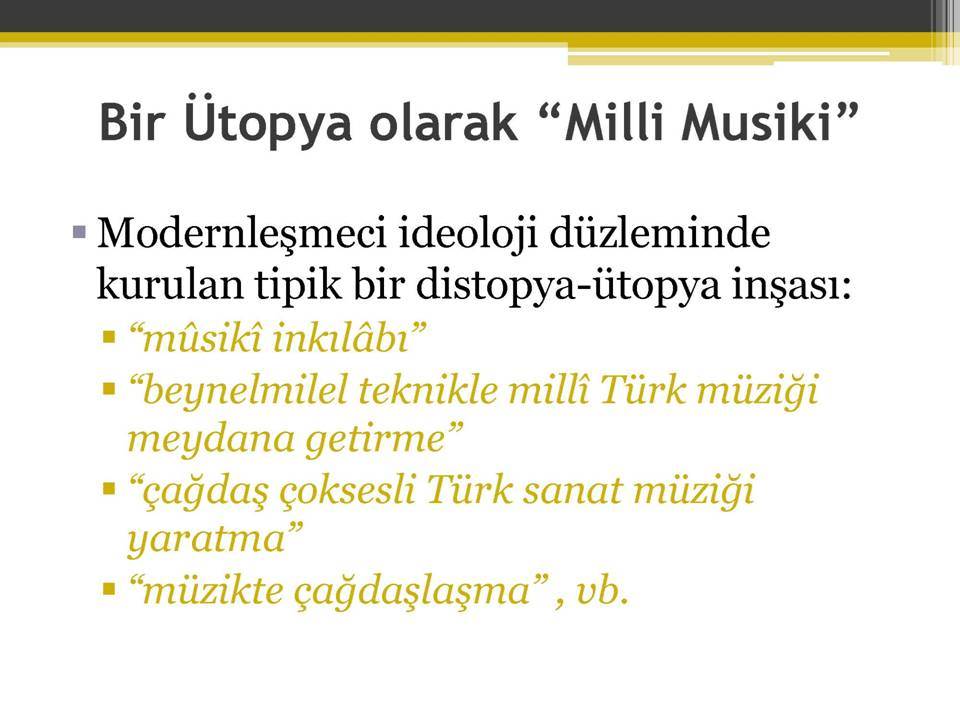
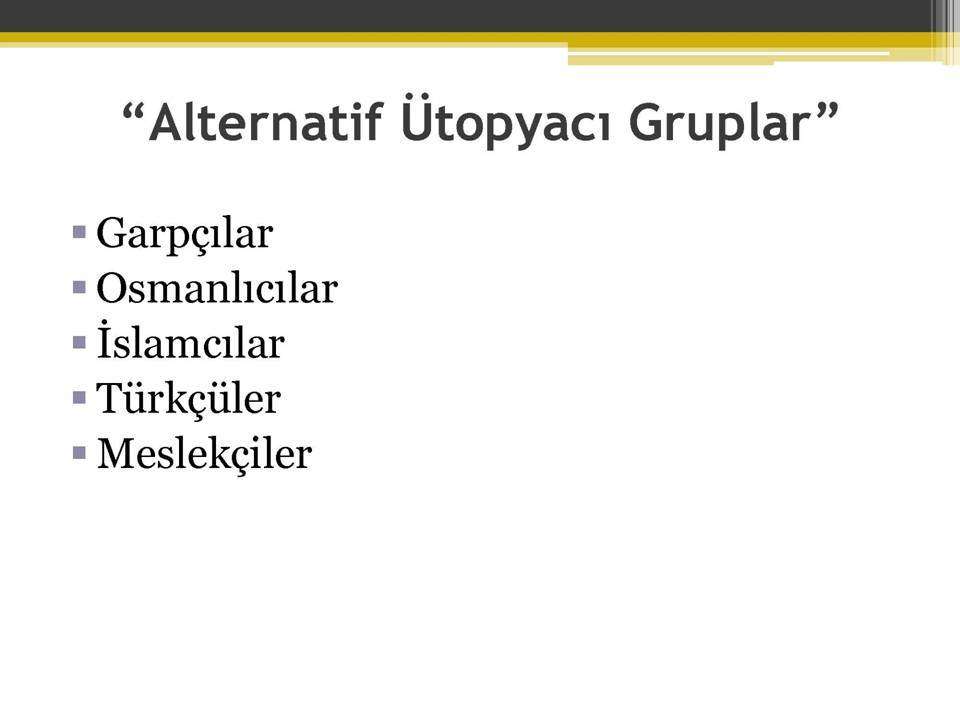
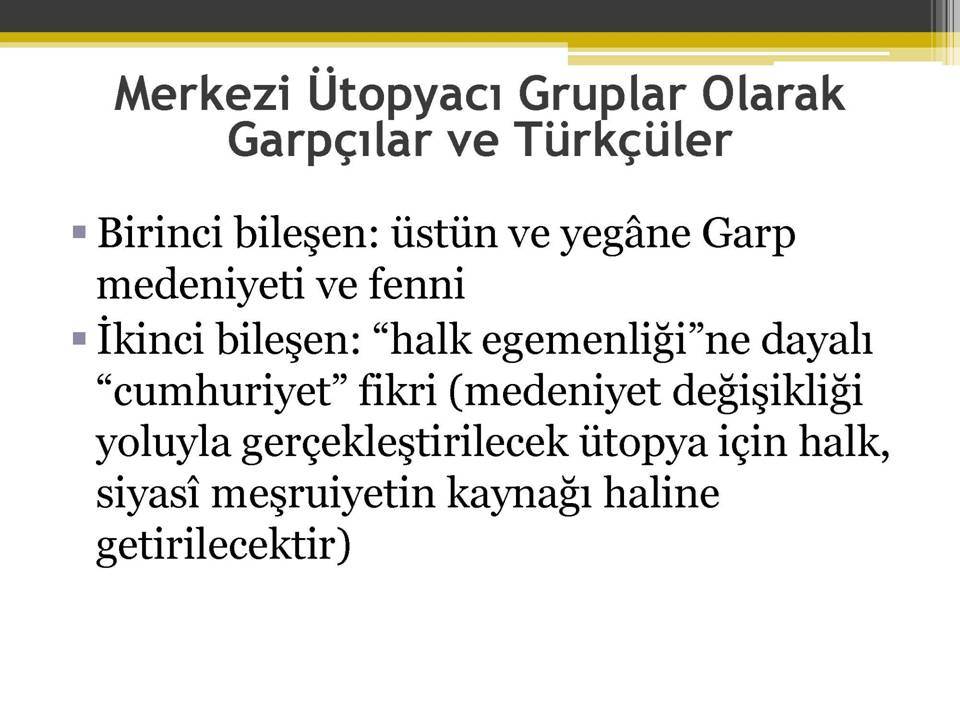
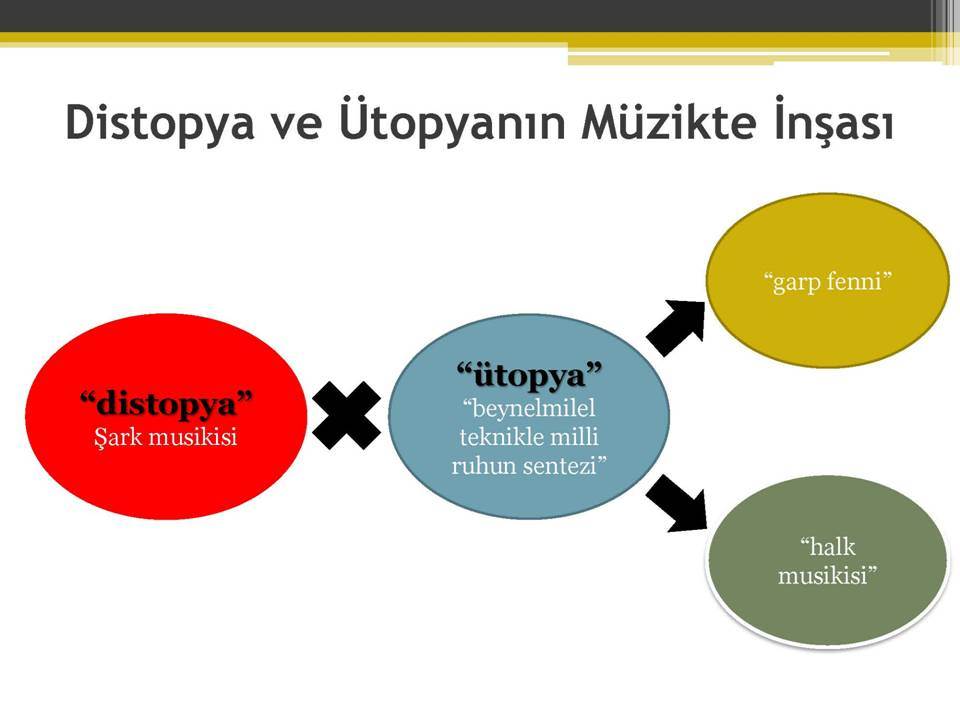
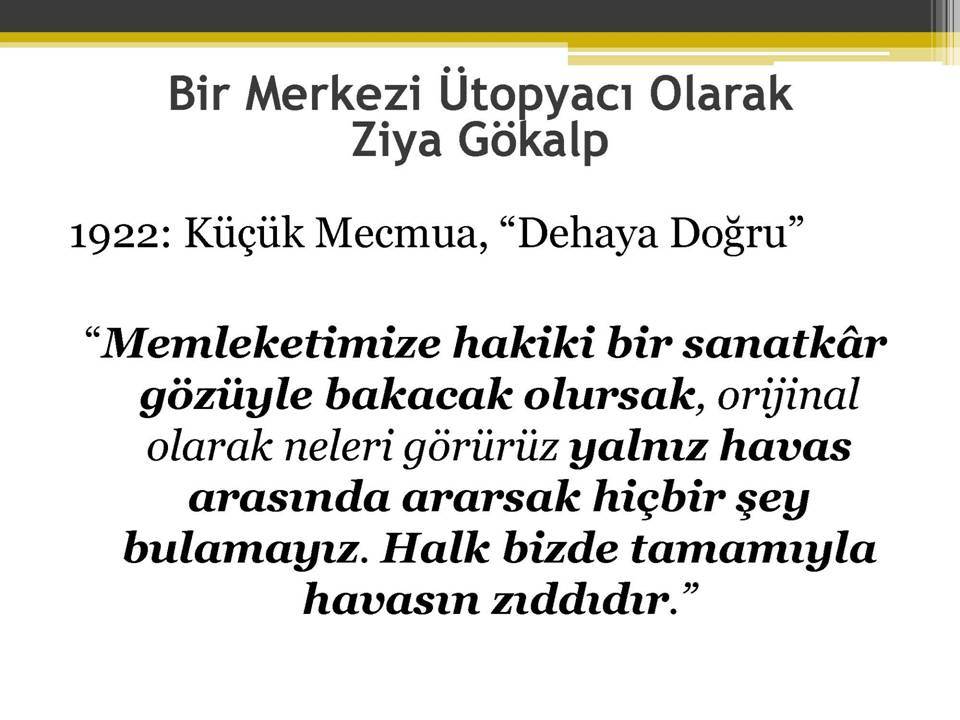
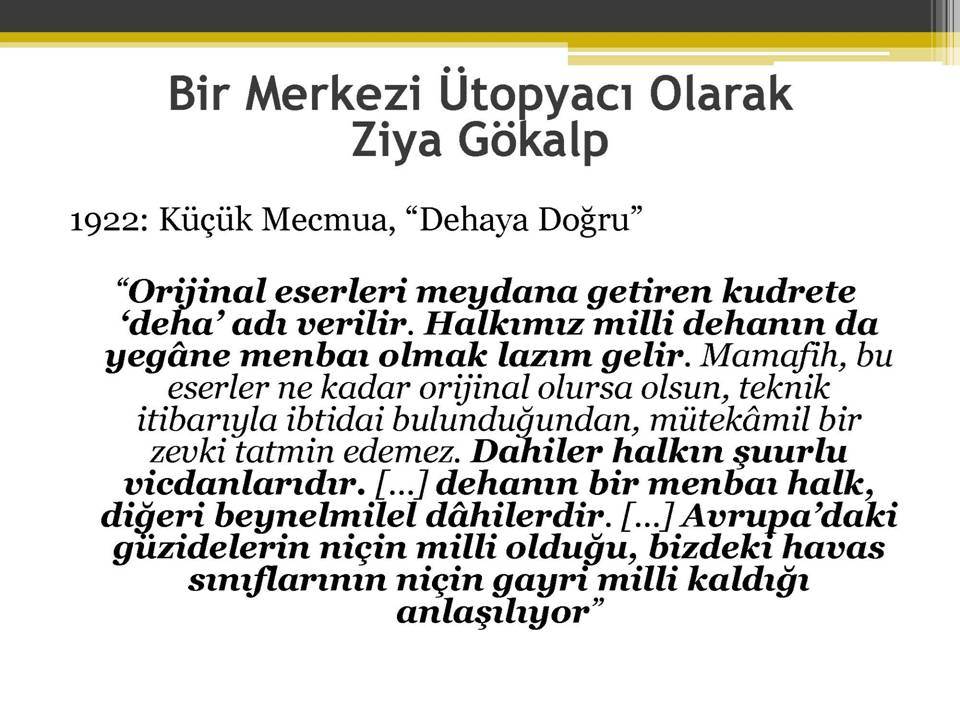
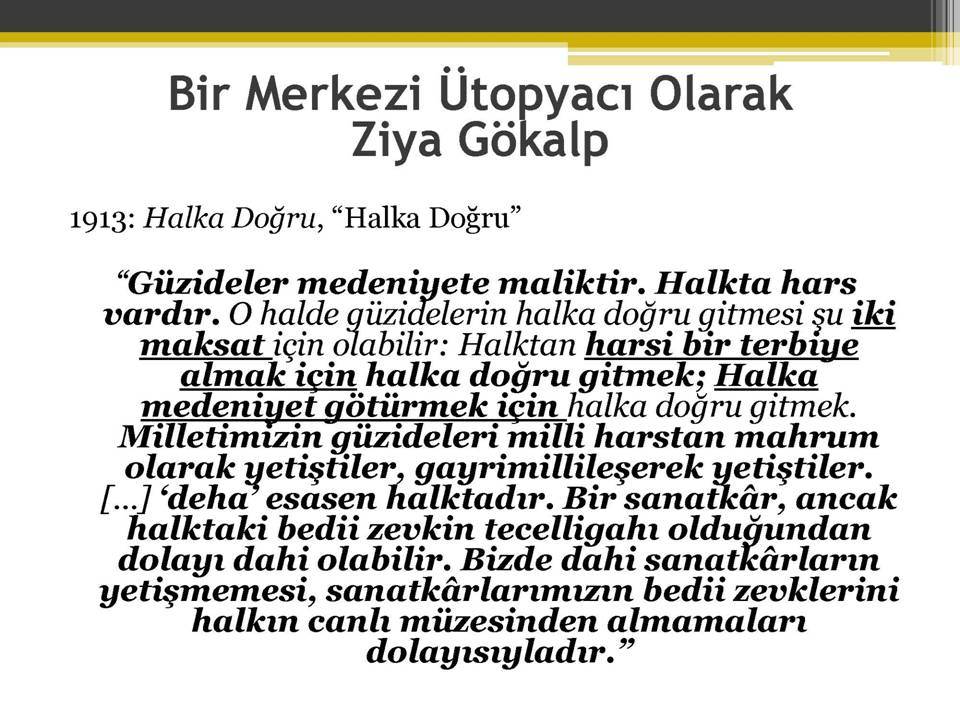
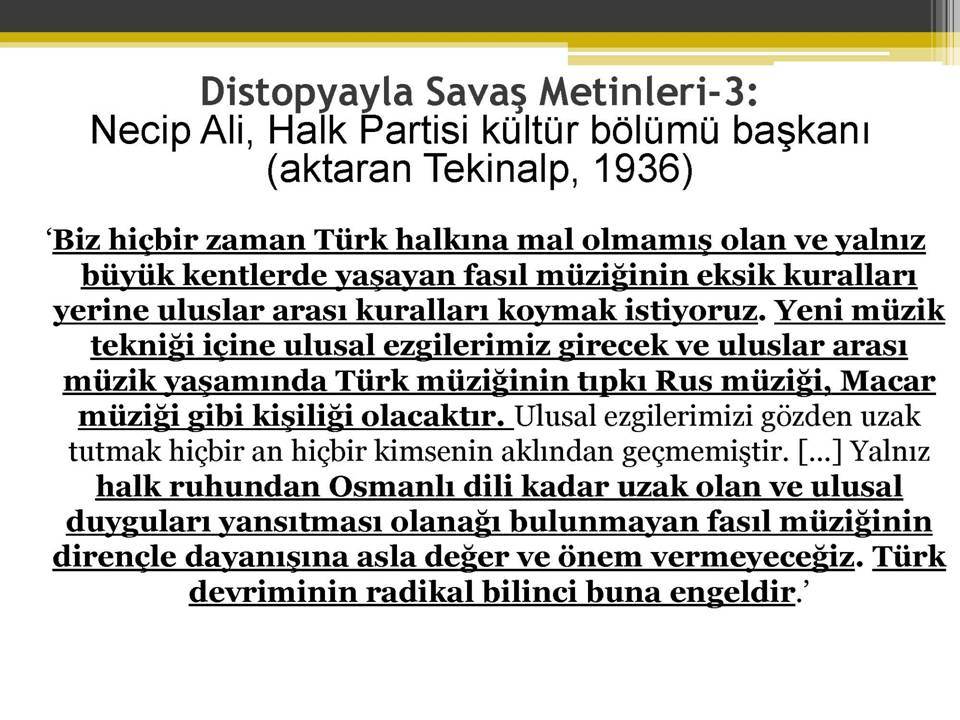
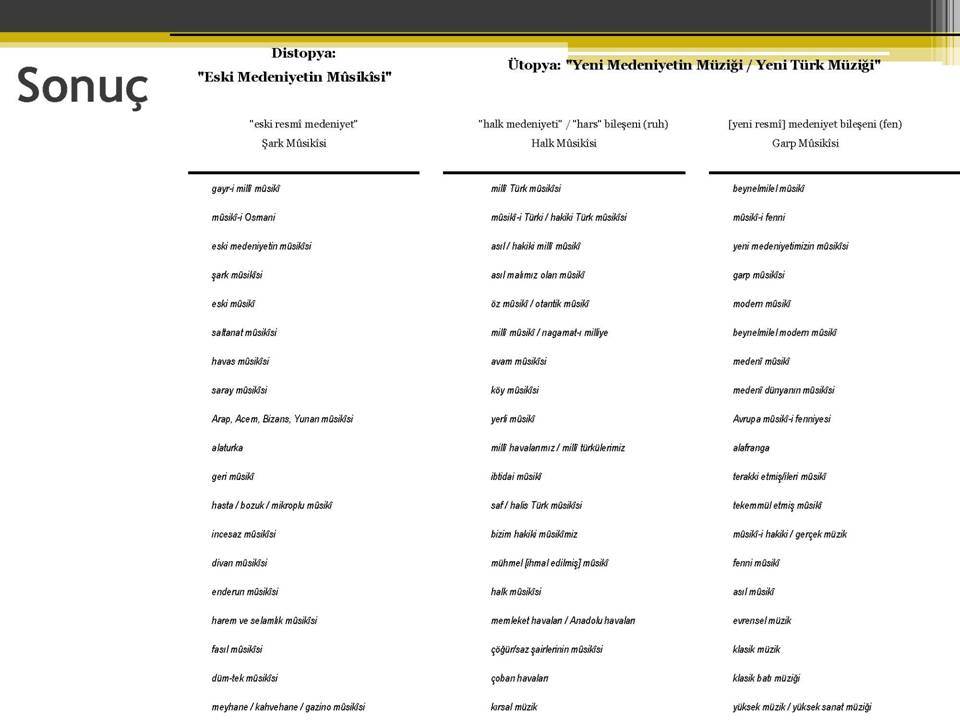
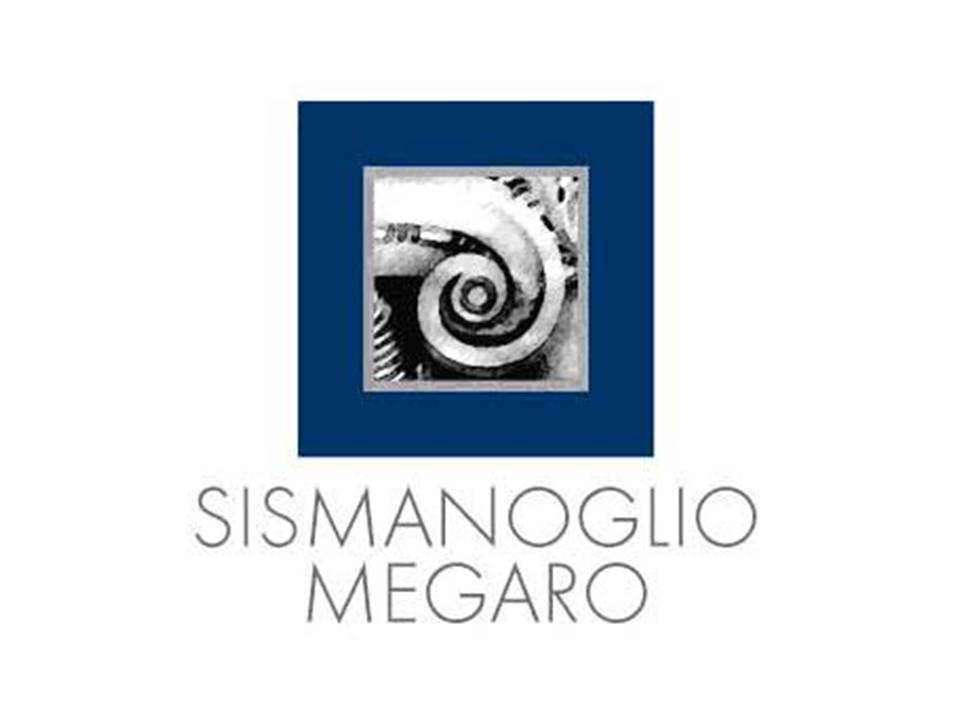
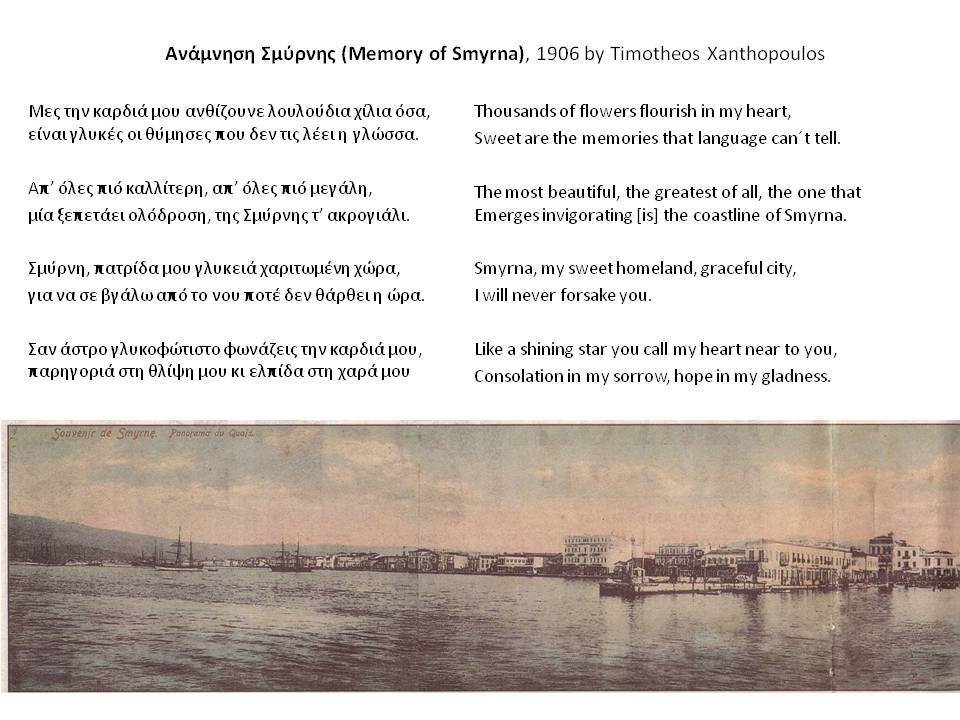
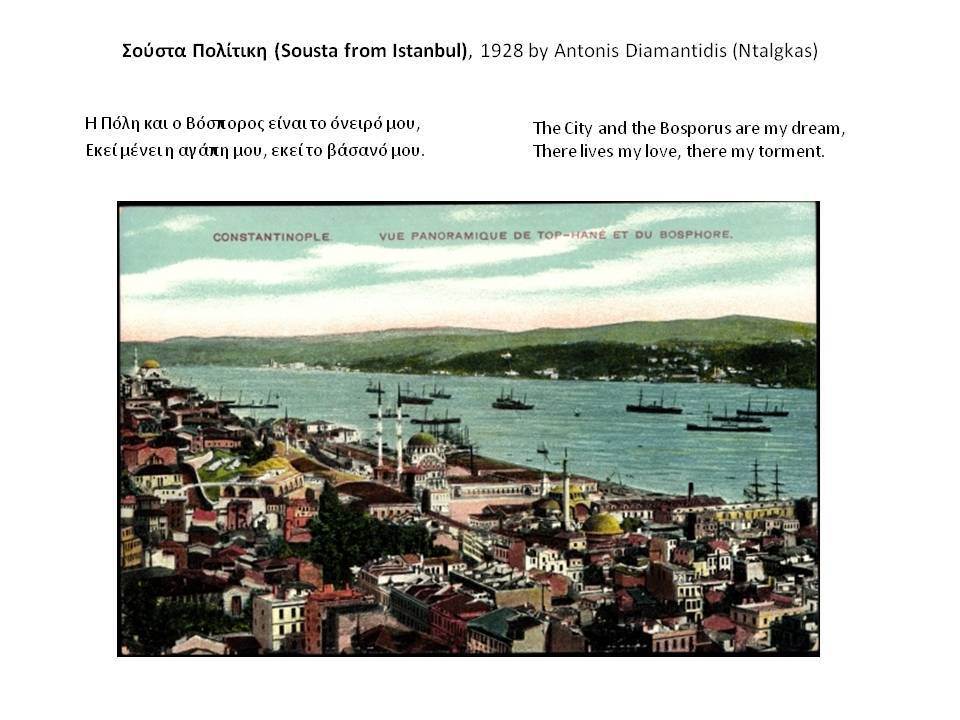
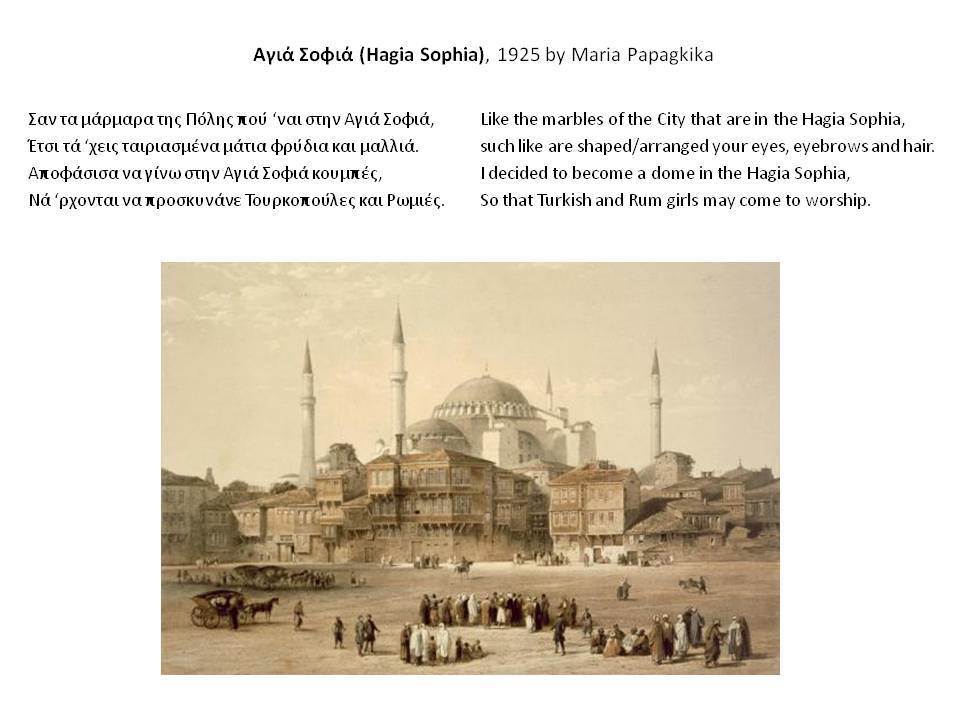
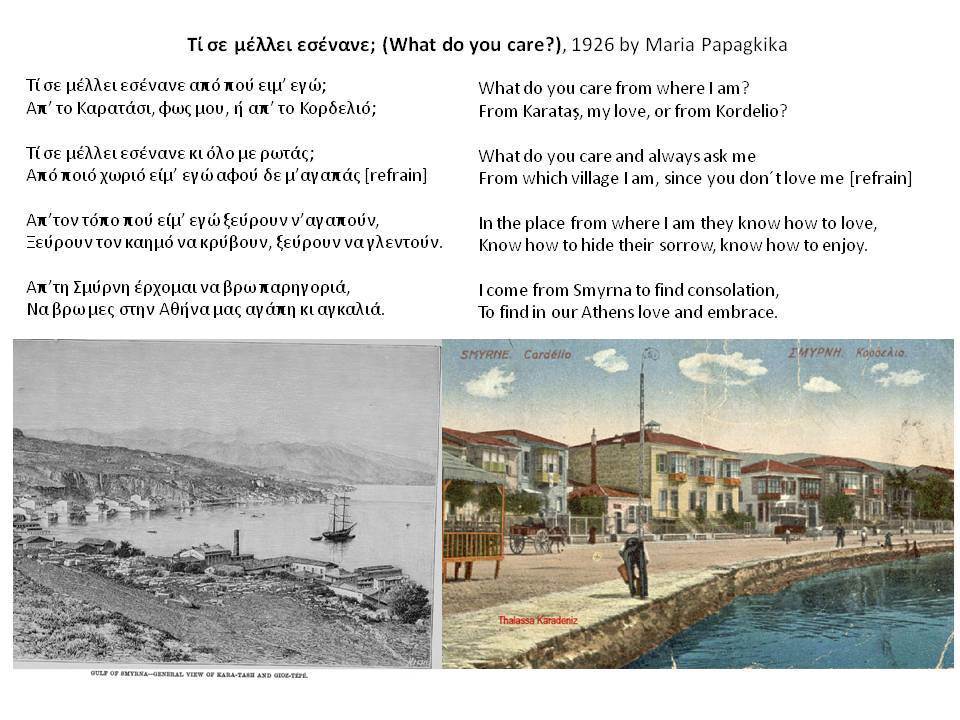
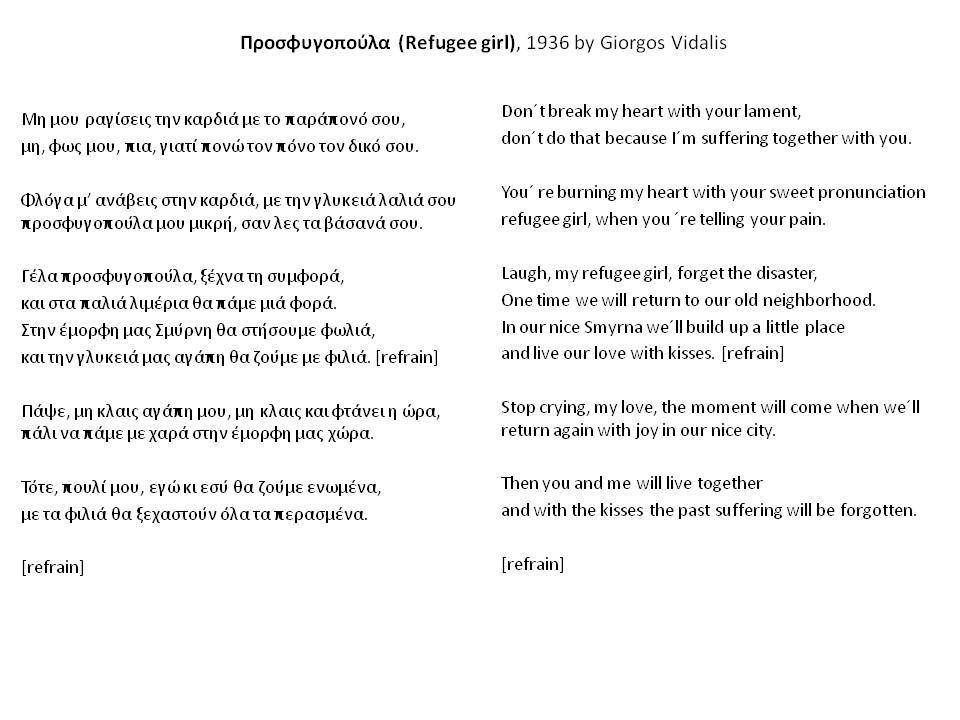
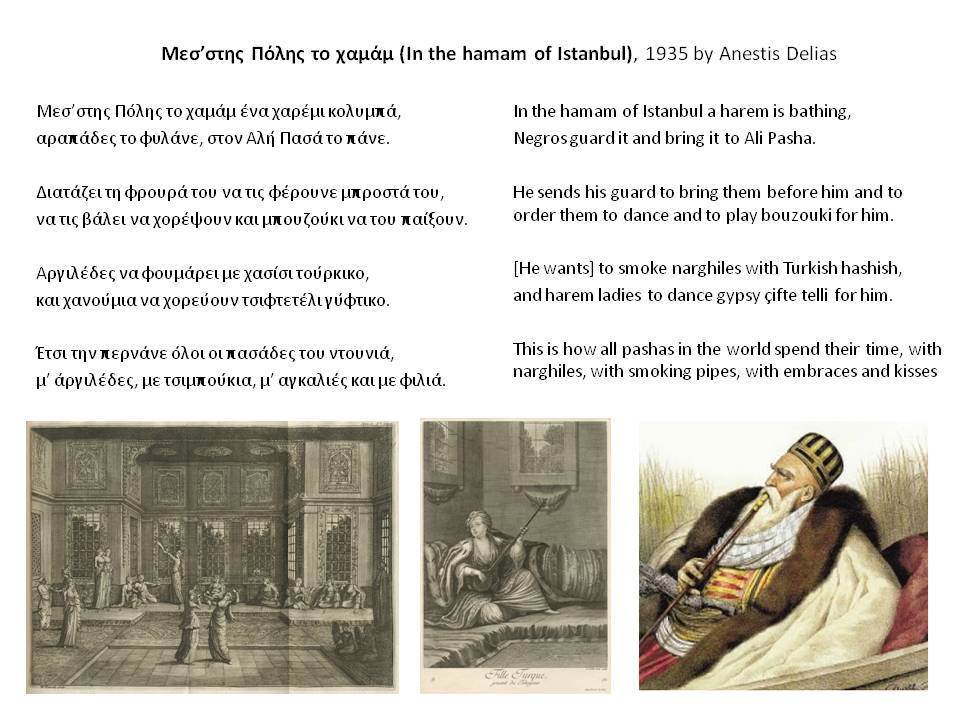
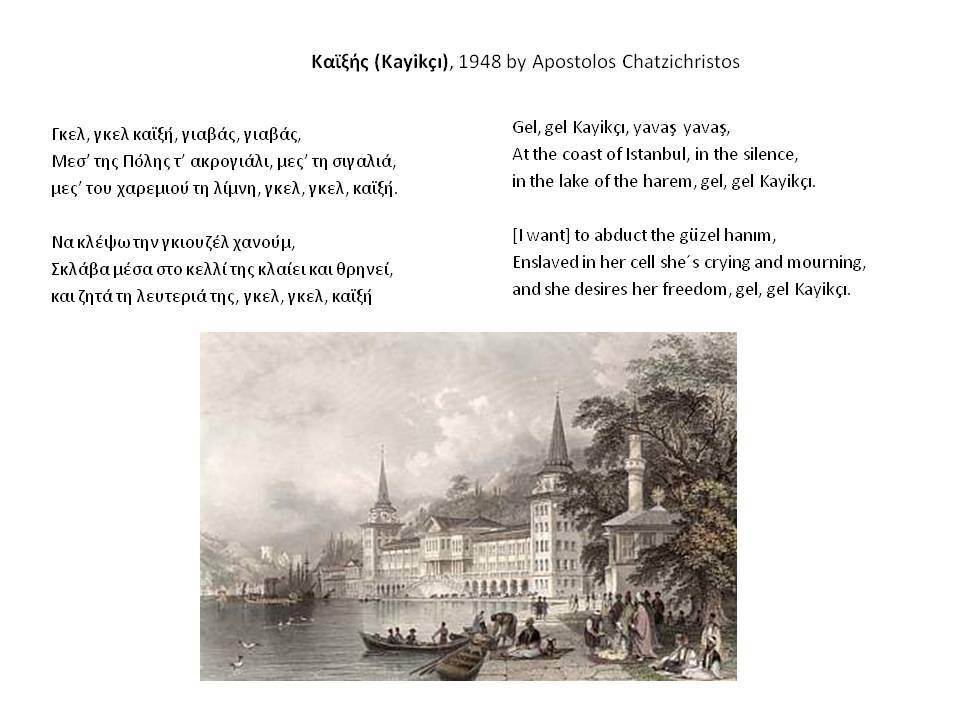
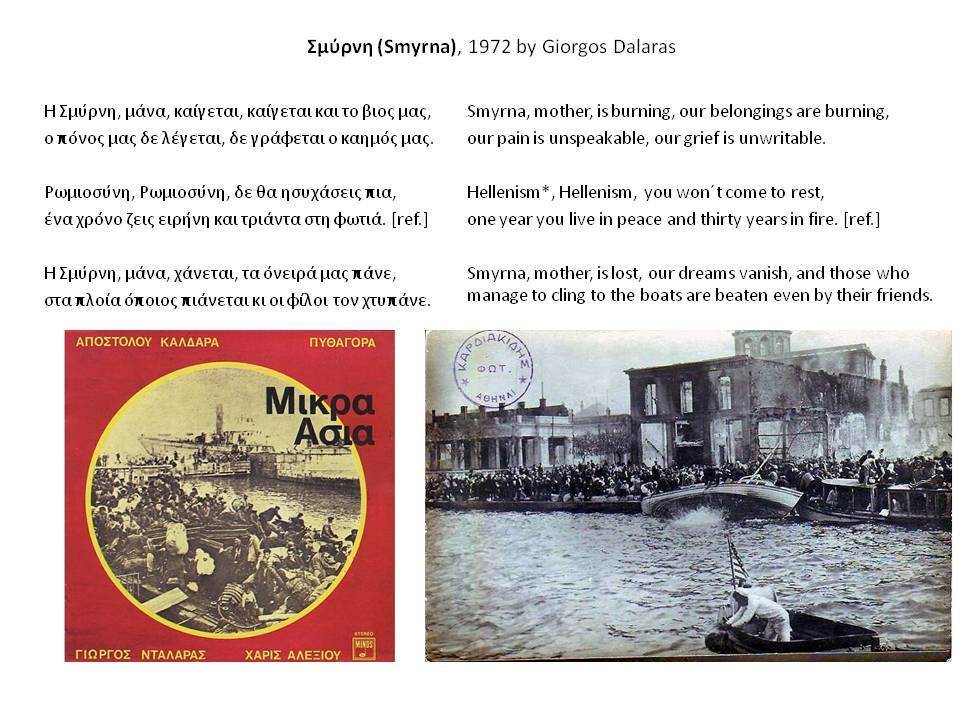
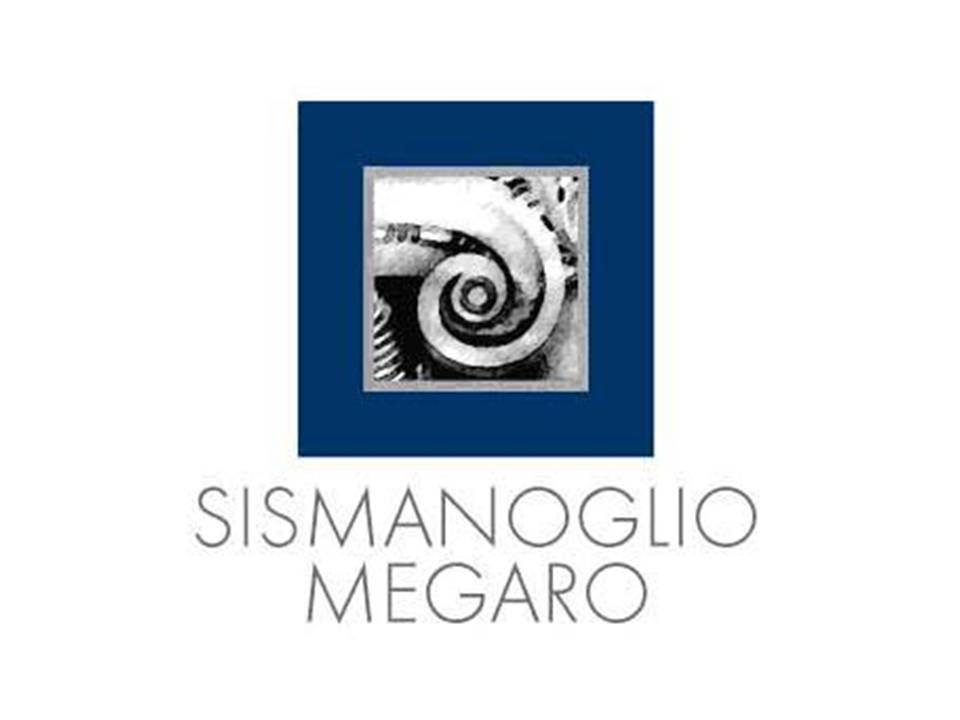
Öztürk Okan Murat
Ζελέπος Ιωάννης
Wittmann Richard
Γλώσσα
Αγγλική, Τουρκική (με ταυτόχρονη αγγλική μετάφραση)
Ημερομηνία
16/02/2016
Διάρκεια
69:52
Εκδήλωση
Κύκλοι διαλέξεων στο Σισμανόγλειο Μέγαρο
Χώρος
Σισμανόγλειο Μέγαρο, Κωνσταντινούπολη
Διοργάνωση
Γενικό Προξενείο της Ελλάδας στην Κωνσταντινούπολη
Κατηγορία
Εθνολογία
Ετικέτες
οθωμανική αυτοκρατορία, μουσική
Scroll for English
Το Γενικό Προξενείο της Ελλάδας στην Κωνσταντινούπολη, το Εθνικό Ίδρυμα Ερευνών (Πρόγραμμα Οθωμανικών Σπουδών) και το Orient-Institut της Πόλης (Orient-Institut, Istanbul) οργάνωνουν στο Σισμανόγλειο Μέγαρο κύκλο διαλέξεων με θέμα:"Ενθυμήσεις από το οθωμανικό παρελθόν της Ανατολικής Μεσογείου”. Η σειρά αυτή των διαλέξεων που οργανώνεται στο Σισμανόγλειο Μέγαρο από την Ευαγγελία Μπαλτά (Πρόγραμμα Οθωμανικών Σπουδών, Εθνικό Ίδρυμα Ερευνών) και τον Richard Wittmann (Orient-Institut της Πόλης), κατά το ακαδημαϊκό έτος Οκτ. 2015-Μάιος 2016, έχει στόχο να φωτίσει όψεις από το κοινό παρελθόν των σημερινών κατοίκων της Ανατολικής Μεσογείου. Η σειρά αυτή των διαλέξεων συνάδει με τα ερευνητικά ενδιαφέροντα του Orient-Institut και του Προγράμματος Οθωμανικών Σπουδών του Εθνικού Ιδρύματος Ερευνών. Εστιάζει σε έναν μεγάλο αριθμό πηγών που υπερσκελίζουν τους κλασικούς κανόνες της καθιερωμένης ιστορικής συγγραφής. Από προσωπικά και επίσημα κείμενα, καθώς και εικαστικές και καλλιτεχνικές μορφές έκφρασης, θα επιχειρηθεί να φωτιστούν οι ρήξεις και οι συνέχειες που ακολούθησαν τη βαθειά πολιτική αναδιοργάνωση αυτού του ευρέος – και για αιώνες ενοποιημένου – γεωγραφικού χώρου ώς τις πρώτες δεκαετίες του 20ού αιώνα.
Διαβάστε περισσότερα http://goo.gl/cL5mVN
Okan Murat Öztürk (Άγκυρα)
Από τη μουσική της δυστοπίας στη μουσική της ουτοπίας: Οι φαντασιώσεις της Πρώτης Ρεπουμπλικανικής Ηγεσίας για την «Ξεπερασμένη Μουσική»
ΠΕΡΙΛΗΨΗ
To κίνημα των Νεοτούρκων ως «ουτοπικό» κίνημα προσανατολίστηκε στο όραμα να απαλλάξει τον οθωμανικό κόσμο από την κόλαση του «σουλτανάτου» και του «χαλιφάτου». Παρά τις διαφορετικές πολιτικές επιλογές και τις αντιθετικές κοσμοθεωρίες που ανέπτυξε, τα μέλη του συνέκλιναν σε ένα θέμα: τη μετάβαση από την «ανατολική» στη «δυτική» κουλτούρα. Κυρίαρχες ομάδες, όπως οι δυτικιστές, οι τουρκιστές, οι οθωμανιστές, οι ισλαμιστές και οι «επαγγελματιστές», έπαιξαν πολύ σημαντικό ρόλο στην εξέλιξη του κινήματος των Νεότουρκων από τη Δεύτερη Συνταγματική Μοναρχία στην Προεδρική Δημοκρατία. Τελικώς οι δυτικιστές και τουρκιστές υπερίσχυσαν κατά τη διαδικασία της μετεξέλιξης προς τη Δημοκρατία και η σφραγίδα τους ήταν ιδιαιτέρως εμφανής σε βασικές πολιτικές επιλογές του ρεπουμπλικανικού κράτους. Η άποψη της πρώτης Ρεπουμπλικανικής ηγεσίας ότι η «πολιτιστική» ποιότητα –τονίζοντας με έμφαση τη «διεθνή» φύση της– προέρχεται από τη «δυτική μουσική», ενώ η «εθνική» ποιότητα κατάγεται από τα «βουκολικά άσματα» σχετίζεται κυρίως με το σχέδιο των Νεοτούρκων για «πολιτιστική αλλαγή» στη μουσική. Σύμφωνα λοιπόν με τις απόψεις τους η μουσική havas εξισώνεται με την οθωμανική ταυτότητα και θεωρείται ως απόλυτη «δυστοπία», για λόγους που σχετίζονται απολύτως με την «πολιτική» δράση. Στο πλαίσιο της οπτικής αυτής προβάλλει, ως καθαρά οριενταλιστική έκφραση, και αναπτύχθηκε μια αρνητική προπαγάνδα από μέρους της Πρώτης Ρεπουμπλικανικής Ηγεσίας συνοδευόμενη με υποτιμητικούς, μειωτικούς ως εξευτελιστικούς χαρακτηρισμούς.
Στόχος της ανακοίνωσης είναι να παρουσιάσει με διάφορα παραδείγματα την αρνητική αυτή στάση απέναντι στην μουσική και τις ενέργειες της Πρώτης Ρεπουμπλικανικής Ηγεσίας, στις οποίες προέβη για την αποκαθάρει από το οθωμανικό της παρελθόν.
Ioannis Zelepos (Μόναχο)
Μεταξύ (χαμένης) πατρίδας και οριενταλισμού – Οι οθωμανικές πόλεις στο ελληνικό λαϊκό τραγούδι του 20ού αιώνα
ΠΕΡΙΛΗΨΗ
Θέμα της διάλεξης είναι οι αναπαραστάσεις και φαντασιώσεις οθωμανικών πόλεων, ιδίως της Κωνσταντινούπολης και της Σμύρνης, στην ελληνική λαϊκή μουσική. Με βάση τις εμπορικές ηχογραφήσεις που παρήχθησαν τον περασμένο αιώνα και οι οποίες διατίθενται σήμερα σε ψηφιακή μορφή, θα ταυτοποιηθούν πρωτίστως τα μοτίβα αυτού του είδους αναπαραστάσεων στους στίχους των ελληνικών τραγουδιών, και στη συνέχεια θα εξεταστεί ο τρόπος με τον οποίο τα μοτίβα αυτά άλλαξαν κατά τη διάρκεια του 20ού αιώνα, και πώς αντικατόπτριζαν τις κατά καιρούς δραματικές πολιτικές εξελίξεις στην περιοχή. Τέλος, θα παρουσιασθούν οι πρόσφατες επανερμηνείες στο πλαίσιο της αφομοίωσης του οθωμανικού παρελθόντος ως πολιτιστικής κληρονομιάς στη σύγχρονη ελληνική λαϊκή μουσική.
Τhe National Hellenic Research Institute (Ottoman Studies Programme) and the Orient-Institut (Istanbul) is to hold at the Sismanoglio Megaro a series of lectures titled “Remembering the Ottoman Past in the Eastern Mediterranean”. This joint series of lectures organized by Evangelia Balta (Programme of Ottoman Studies, National Hellenic Research Foundation, Athens) and Richard Wittmann (Orient-Institut, Istanbul), to be held at the Sismanoglio Megaro during the October 2015 – May 2016 academic year, aims to shed light on various aspects of the communal past of today’s residents of the Eastern Mediterannean region. This series of lectures is consistent with the research interests of the Orient-Institut Istanbul and the Programme of Ottoman Studies at the National Hellenic Research Foundation. It focuses on a large number of sources that go beyond the standard rules of established history-writing. By taking into account personal and official textual sources, as well as visual and artistic forms of expression, an attempt will be made to throw light on the rifts and continuities that accompanied the profound political reshuffling in this wide – and for centuries, unified – geographical area during the first third of the twentieth century. Read more http://goo.gl/cL5mVN
Okan Murat Öztürk (Ankara)
From the Music of Dystopia to the Music of Utopia: The Fantasies of the Early Republican Cadres on “Obsolete Music”
ABSTRACT
The Young Turks was a “utopian” movement concerned with initiatives, efforts and visions of freedom from the hell of the “sultanate” and “caliphate” in which they lived. Despite differing political preferences and competing world views, the members of this utopian movement were in complete unity on one subject: the transition from “Eastern culture” to “Western Culture”. Mainstream groups such as the Westernists, Turkists, Ottomanists, Islamists and [Vocationalists] assumed highly important roles in the evolution of the Young Turks movement from the Second Constitutional Monarchy to the Republic. Ultimately, in comparison to the others, the Westernist and Turkist groups were especially prominent during the foundation process of the Republic, and as such, their distinctiveness in the principal politics of the Republic is visible.
The Early Republican Cadre’s expression that the “cultural” quality–insistently stressing its “international” nature– is from “Western music”, while the “nationalist” quality draws from “shepherd tunes” is primarily the product of the most fundamental approaches regarding the creation of the Young Turks’ “cultural change” proposition in the musical sphere. This “magical” expression proclaims “havas music”, equated with Ottoman identity, without any aesthetic, artistic, psychological, sociological and cultural criterion, purely from “political” activity, as a total “dystopia”. Toward this cause, in a completely Orientalist expression, the Early Republican Cadre’s implementation of a negative propaganda featuring disparaging, derogatory, and trivializing assertions laden with heavy indictment is apparent.
The aim of this conference is to debate and consider various examples of the Early Republican Cadre’s constructions of utopia-distopia, and of their oppositional intent, in the geography in which they were living, through the expressions in their music plan to render the Ottoman past forgotten and stripped of influence.
Ioannis Zelepos (Munich)
Between (lost) Homeland and Orientalism – Ottoman Cities in 20th Century Greek Popular Song
ABSTRACT
This lecture deals with representations and imaginations of Ottoman cities, particulary Istanbul and Izmir, in Greek popular music. Based on commercial recordings produced during the last century, and which are accessible today in digitalized form, it will first identify specific patterns of such representations in Greek song lyrics and then examine how these patterns changed over the course of the 20th century and how they reflected the –at times– dramatic political developments in the region. Finally, an outlook will be given on recent reinterpretations in the context of integrating the Ottoman past as a cultural legacy in contemporary Greek popular music.
Ο Okan Murat ÖZTÜRK υποστήριξε το 2014 τη διδακτορική του διατριβή με τίτλο «Makam Müziğinde Ezgi ve Makam İlişkisinin Analizi ve Yorumlanması İçin Yeni Bir Yaklaşım: Perde Düzenleri ve Makamsal Ezgi Çekirdekleri» (Το Ezgi στη μουσική Makam, ανάλυση του Makam, και μια νέα προσέγγιση του σχολιασμού: Σχηματισμοί Perde και τα σπέρματα του Makam Ezgi). Έχει γράψει πληθώρα άρθρων, φυλλαδίων και κεφαλαίων σε βιβλία σχετικά με την προσέγγιση, ανάλυση και σχολιασμό των θεωρητικών ιστορικών μοντέλων της παραδοσιακής μουσικής. Έχει συμμετάσχει σε διεθνή συνέδρια, συμπόσια, διαλέξεις και σεμινάρια. Ο Δρ Öztürk έχει οργανώσει συναυλίες, εργαστήρια και συνέδρια στο πεδίο των παραδοσιακών μουσικών οργάνων, το λαούτο, και τα έγχορδα όργανα που ανήκουν στον τύπο του μπαγλαμά. Έχει διατελέσει τελετάρχης, διευθυντής ορχήστρας και παραγωγός στις τηλεοπτικές εκπομπές «Katre, Anonim ve Eski Havalar» του καναλιού TRT. Διετέλεσε επίσης μουσικός διευθυντής και εκτελεστής του προγράμματος Hattuşa, το οποίο κατατάσσεται μεταξύ των σημαντικότερων παραδειγμάτων στον χώρο της εφαρμοσμένης ιστορικής μουσικολογίας διεθνώς. Στη διάρκεια επιστημονικών σεμιναρίων στο πλαίσιο του ίδιου προγράμματος, ο Δρ Öztürk οργάνωσε και παρουσιάσεις γύρω από το θέμα της μουσικής αρχαιολογίας της Μικράς Ασίας και των μουσικών οργάνων τύπου μπαγλαμά.
Okan Murat ÖZTÜRK completed his doctoral dissertation entitled “Makam Müziğinde Ezgi ve Makam İlişkisinin Analizi ve Yorumlanması İçin Yeni Bir Yaklaşım: Perde Düzenleri ve Makamsal Ezgi Çekirdekleri” [Ezgi in Makam Music, Makam Analysis, and a New Approach to Commentary: Perde Formations and Seeds of Makam Ezgi] in the year 2014. On the subjects of folk music and makam music, he has written a variety of articles, manifestos and book chapters about the treatment, analysis and commentary on historical theoretical models of the traditional repertoire as a whole. He has both participated in and served on multiple international conventions, symposiums, panels and seminars. Dr. Öztürk has organized concerts, workshops and conferences in the fields of traditional musical instruments, lute, and stringed instruments in the bağlama family [group]. He has performed as master of ceremonies, maestro, and producer in the “Katre, Anonim ve Eski Havalar” tv-radio programs prepared for TRT. He served additionally as musical director and performer for the Hattuşa project, which ranks among the preeminent examples in the world in the field of applied historical musicology. During academic seminars in the scope of the same project, Dr. Öztürk further organized presentations on the subject of Anatolian musical archeology and the bağlama category of instruments. In 1988 he formed the “Bengi Bağlama Üçlüsü” [Bengi Baglama Trio] and worked as an artist for both TRT and the Ministry of Culture. In 2006 his book “Zeybek Kültürü ve Müziği” was published. He authored the following works: “Pan’a Armağan 20. Yıl Kitabı” [A Gift to Pan – the 20th Anniversary Book] (2006), “Maqam” (2012), “In Which Direction is Music Heading? Cultural and Cognitive Studies in Turkey” (2014), and “Writing the History of ‘Ottoman Music’” (2015). He served as both an editor and an author for the publications “Türkiye’de Müzik Kültürü” (2008) and “Kırşehirli Edvarı” [Cycles of Kırşehir] (2014). Currently Dr. Öztürk is a faculty member at the Başkent University State Conservatory. Apart from books, dozens of his published music CDs, documentary music, and tv program recordings are available.
Ο Ιωάννης Ζελέπος σπούδασε Ιστορία, Βυζαντινές σπουδές και Νεοελληνική Φιλολογία στο Αμβούργο, τη Θεσσαλονίκη, το Βερολίνο και την Αθήνα. Το 2000 έλαβε διδακτορικό πάνω στην ανατολικο-ευρωπαϊκή ιστορία από το Ελεύθερο Πανεπιστήμιο του Βερολίνου. Από το 2003 διδάσκει ανελλιπώς στα πανεπιστήμια Αμβούργου, Βερολίνου, Βιέννης, Λευκωσίας, Μπρνο, Βέρνης, Ρέγκενσμπουργκ, και Μονάχου. Το 2011 έλαβε Venia legendi (Habilitation) πάνω στη ιστορία της Νοτιοανατολικής Ευρώπης και τις Νεοελληνικές Σπουδές από το Πανεπιστήμιο της Βιέννης. Σήμερα είναι Καθηγητής Νεοελληνικών Σπουδών στο Πανεπιστήμιο Ludwig-Maximilians του Μονάχου, όπου διευθύνει το δικό του DFG ερευνητικό πρόγραμμα από τον Οκτώβριο 2015.
Τα ερευνητικά του ενδιαφέροντα εστιάζουν στην ιστορία της νεότερης Ελλάδας και της Κύπρου, τον εθνικισμό και τα ζητήματα ταυτοτήτων στη νοτιοανατολική Ευρώπη, στη νεότερη ελληνική λαϊκή κουλτούρα, την ιστορία της ορθόδοξης Εκκλησίας στην οθωμανική αυτοκρατορία, και την ιστορία του Διαφωτισμού στη νοτιοανατολική Ευρώπη.
Ioannis Zelepos has studied History, Byzantine Studies and Modern Greek Philology in Hamburg, Thessalonica, Berlin, and Athens. In 2000 he earned his Ph.D. in Eastern European History from Freie Universität Berlin. He has continuously taught since 2003 at the Universities of Hamburg, Berlin, Vienna, Nicosia, Brno, Berne, Regensburg, and Munich. In 2011 he obtained the Venia legendi (Habilitation) for “Southeast European History” and “Modern Greek Studies” from the University of Vienna. He is currently Professor for Modern Greek Studies at Ludwig-Maximilians-University in Munich where he holds his own DFG research-project since October 2015.
His research interests focus on the History of modern Greece and Cyprus, Nationalism and identity discourses in Southeast Europe, modern Greek popular culture, History of the Orthodox Church in the Ottoman Empire, and the History of the Enlightenment in Southeast Europe.
Τελευταίες δημοσιέυσεις / Recent publications:
• Ulrike Tischler / Ioannis Zelepos (Eds.), Bilderwelten – Weltbilder. Die Gegenwart der Vergangenheit in postosmanischen Metropolen Südosteuropas [Thessaloniki, Istanbul, Izmir], Frankfurt/M. 2010.
• “Amateurs as nation builders? On the significance of associations for the formation and nationalization of the Greek society in the 19th century”, in: Hannes Grandits / Nathalie Clayer / Robert Pichler (Eds.), Conflicting Loyalties in the Balkans. The Great Powers, the Ottoman Empire and Nation Building, I.B.Tauris, London 2011, pp. 64-85.
• Orthodoxe Eiferer im osmanischen Südosteuropa. Die Kollyvadenbewegung (1750-1820) und ihr Beitrag zu den Auseinandersetzungen um Tradition, Aufklärung und Identität, Wiesbaden 2012.
• “Multi-denominational interaction in the Ottoman Balkans from a legal point of view: the institution of kiambin-marriages”, in: Eliezer Papo / Nenad Makuljević (Eds.), El Prezente. Studies in Sephardic Culture, vol. 7 – Menorah. Collection of Papers, vol. 3. Common Culture and Particular Identities: Christians, Jews and Muslims in the Ottoman Balkans, Beer-Sheva 2013, S. 43–53.
• Kleine Geschichte Griechenlands. Von der Staatsgründung bis heute, Munich 2014.
Ο Richard Wittmann (Διδακτορικό στην Ιστορία και τις Μεσανατολικές Σπουδές, Πανεπιστήμιο του Χάρβαρντ το 2008) είναι Αναπληρωτής Διευθυντής του Orient-Institut στην Κωνσταντινούπολη. Αφού σπούδασε Νομικά, Ισλαμικές Σπουδές και Τουρκολογία στο Πανεπιστήμιο του Μονάχου και στο Freie Universität του Βερολίνου συνέχισε τις σπουδές του με υποτροφία από το Πανεπιστήμιο του Harvard, στο Τμήμα Ιστορίας και στο Κέντρο Μεσανατολικών Σπουδών.
Τα ερευνητικά του ενδιαφέροντα εστιάζονται στην Ισλαμική Nομική Iστορία και την κοινωνική ιστορία της Οθωμανικής Αυτοκρατορίας. Ιδιαίτερη προσοχή δίνεται στο έργο του στην έρευνα των “αυτο-αφηγήσεων“ ως ιστορικών πηγών για τη μελέτη της Εγγύς Ανατολής.
Ο Richard Wittmann συντονίζει ένα διεθνές συνεργατικό ερευνητικό πρόγραμμα με σκοπό τη μελέτη και δημοσίευση των οθωμανικών «αυτο-αφηγήσεων» (www.istanbulmemories.org). Είναι ο επιμελητής της σειράς δημοσιεύσεων Memoria. Fontes Minores ad Historiam Imperii Ottomanici Pertinentes (www.perspectivia.net/publikationen/memoria).
Richard Wittmann (Ph.D. in History and Middle Eastern Studies, Harvard University 2008) is the Associate Director of the Orient-Institut Istanbul. After studying Law, Islamic Studies, and Turcology at the University of Munich and at Freie Universität Berlin he was awarded a scholarship from Harvard University where he continued his studies at the Department of History and at the Center for Middle Eastern Studies.
His research interests focus on Islamic legal history and the social history of the Ottoman Empire. Special attention is given in his work to the consideration of self-narratives as historic sources for the study of the Near East.
Richard Wittmann coordinates an international collaborative research project aiming at the study and publication of Ottoman self-narratives (www.istanbulmemories.org). He is the editor of the publication series Memoria. Fontes Minores ad Historiam Imperii Ottomanici Pertinentes (www.perspectivia.net/publikationen/memoria) and (co)editor of the monograph series Self-Narratives of the Ottoman Realm: Individual and Empire in the Near East (Farnham: Ashgate).


